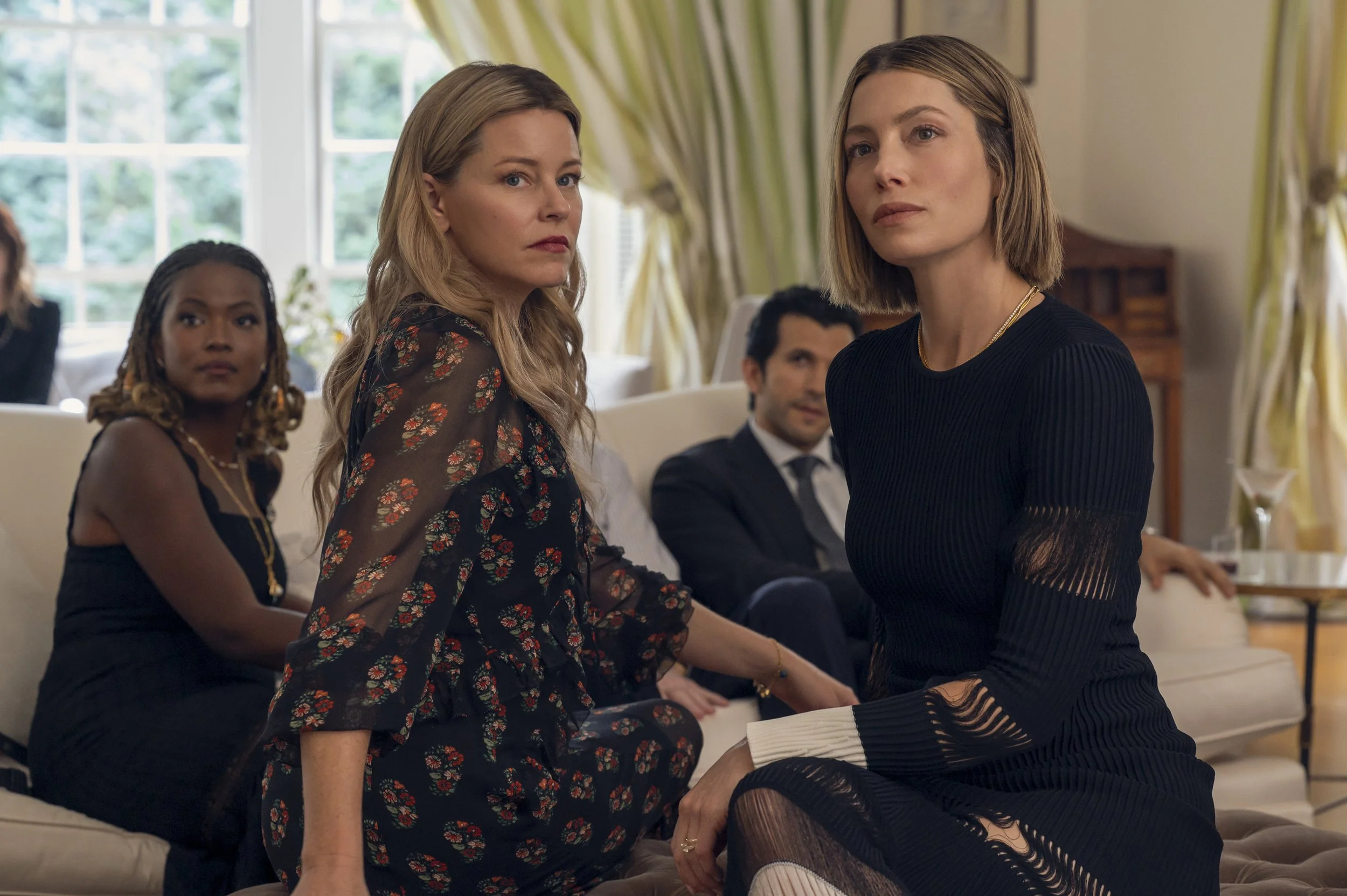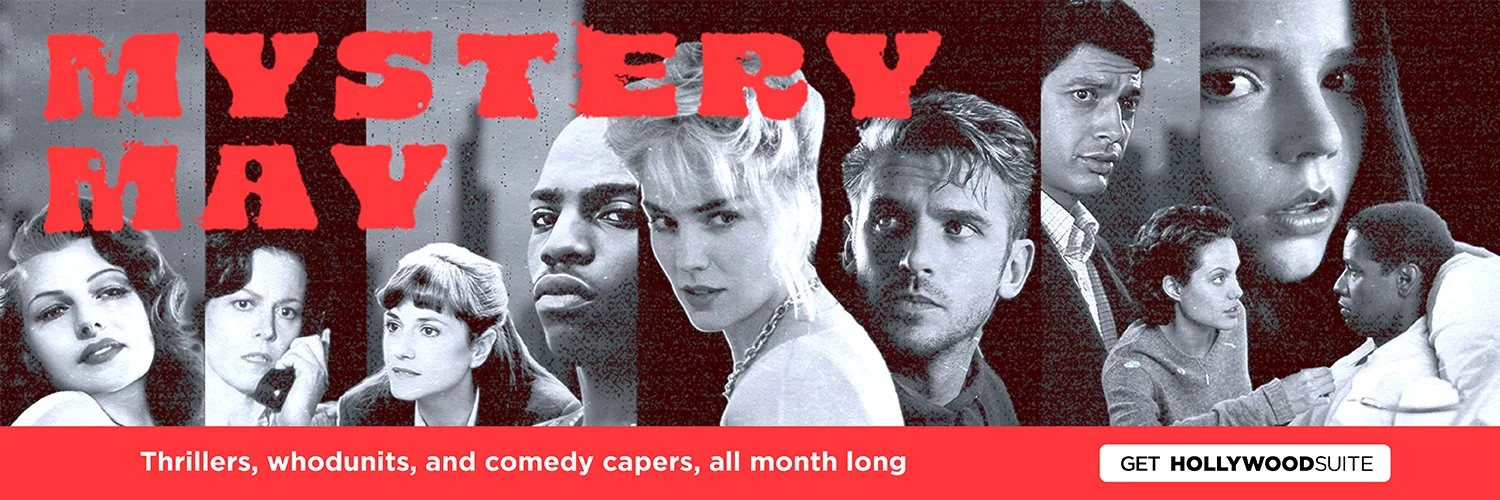The Better Sister: Sibling Rivals, A Grisly Stabbing and Too Many Suspects
By Liam Lacey
Rating: C
Amazon’s new eight-part series The Better Sister stars Jessica Biel as type-A “good sister” and Elizabeth Banks as her estranged “bad sister” who has a messy history with drugs and alcohol.
They are reunited in the wake of a family murder, which leads to a trial, which leads to the spillage of family secrets and, as you might guess, a reversal of our original judgements. The strategy here is the hope that viewers will be curious enough about the ending to stick with 90 minutes of material stretched into several hours of screen time.
The Better Sister was adapted by Olivia Milch and Regina Corrado from a best-selling 2019 novel by Alafair Burke, a work that fits squarely into the “domestic noir” crime fiction genre popularized in the 2010s. These are novels in the mode of Gillian Flynn’s Gone Girl that involve twisty narratives about secretly bad men and toxic marriages and family crimes hidden beneath a veneer of privilege and respectability.
Biel plays Chloe Taylor, an author and celebrated editor of a New York-based women’s magazine, celebrated for her feminist principles, who wears her hair parted in the centre, a sphinx-like gaze and has wardrobe full of form-clinging outfits.
Chloe and her corporate lawyer husband Adam (Corey Stoll) have a Manhattan penthouse and an East Hampton beach house that they share with Adam’s teenaged son, Ethan (Maxwell Acee Donovan) from a first marriage. That means there’s some real estate and fashion gawking provided in exchange for your commitment.
One night when Chloe returns from a party to their beach home, she finds Adam lying stabbed to death on the living room floor. Soon after, Chloe is interviewed by Detective Guidry (Kim Dickens, also the detective in Gone Girl) and Max Bowen (Bobby Naderi). We learn Guidry is a lesbian raised in the south and Bowen is the child of immigrants and the two have a bickering, bantering relationship.
These background details about secondary characters feel less about fleshing out details than a narrative quirk. Throughout the film, characters have an odd tendency to declare their ethnic or gender identities. Within minutes of appearing onscreen, Guidry announces that she married to another woman. Similarly, Bill (Matthew Modine), the head of Adam’s law firm, wears a high white pompadour and an ascot and announces, in his first speech, to enjoying his memories of “illicit disco-era sex.”
Each of the Black characters in the series (there are none in the book) — including Chloe’s imperious Oprah-like boss, Catherine (Lorraine Toussaint) — pointedly refers to their ethnicity. These feel like clumsy shortcuts, as if the actors were charged with representing a set of traits written on an index card.
During her police interrogation, with the crimson blood stain on her white dress resembling a messy Japanese flag, Chloe suggests she, not Adam, may have been the real target, that one of the misogynist trolls who hated her on social media may have taken his hostility to the next level.
Instead, the detectives focus on the teenaged Ethan, who has a track record of concerning behaviour and a tense relationship with his demanding father. His arrest leads to the arrival of Chloe’s sister, Nicky (Banks), who has a long history not only with Chloe but Adam and Ethan as well, which I won’t spoil. The sisters’ conflicts and eventual bond over the course of the trial comprises the long middle section of the series.
Banks first appears on screen in a flashback from a dozen years before, wearing a sleeveless leopard skin print top and a denim miniskirt and crimson lipstick, clear signifiers of her poor judgement. Year later, when she shows up for Ethan’s trial, she’s in a more casually rumpled mode, though no match for her soigné sister. Predictably, Banks is the most engaging actor here, especially in scenes where she displays her entirely credible exasperation for her prim sibling.
As the episodes progress, viewers are fed a constant assembly line of fresh revelations and plot twists to keep them guessing. We note Nicky’s continuing issues with impulsive control, when she gets smashed at Adam’s memorial. Also, the control freak Chloe clearly has some secrets, suggested by the pack of cigarettes she stashes in planter on her apartment terrace and the foldable knife in the glove compartment of her car.
And what about the elderly doorman (Michael Harney) who is obviously besotted with Chloe? Meanwhile, the script refers to ominous corporate shenanigans involving Adam, his boss Bill, fellow lawyer Jake (the frequently shirtless Gabriel Sloyer), and a mysterious overseas entity known as The Gentry Group.
In the end, the mechanical plotting drains our enthusiasm long before the mystery of Adam’s murder is resolved in a fashion that, to its credit, is both unpredictable and plausible. The Better Sister can best be characterized as “watchable,” in the sense that it is undemanding and filling, like a slightly stale bag of crispy snacks that can still be called edible.
The Better Sister. Starring Jessica Biel, Elizabeth Banks, Corey Stoll, Maxwell Acee Donovan, Kim Dickens, Bobby Naderi, Gabriel Sloyer, Matthew Modine, Lorraine Toussaint and Michael Harney. All eight episodes available on Prime Video May 29.



